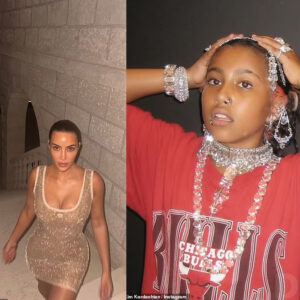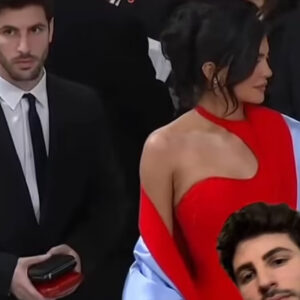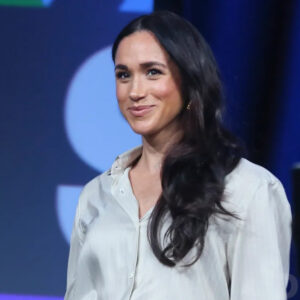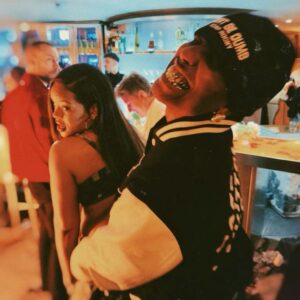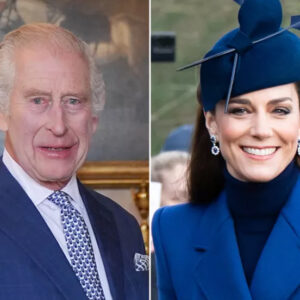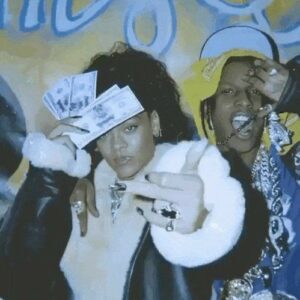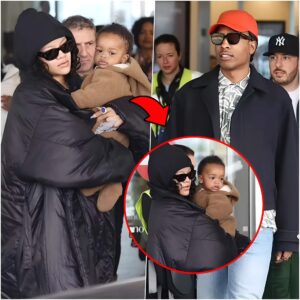:max_bytes(150000):strip_icc():format(webp)/taylorswift_l-2-a3fc834110f84fd4b114c2d98a77136e.jpg)
“I love turning on pop radio and hearing my song,” allows Taylor Swift, the 18-year-old country music sensation. “But,” she adds, mindful of her base, “I don’t look at it as crossover as much as spillover.”
Her cup definitely runneth over. In 2007, Swift’s debut album was one of the top 10 all-genre SoundScan sellers. And all those sales came in while a lot of non-country-lovers had yet to hear of her…or, if they had, were still asking, “Taylor Swift? Who’s he?” She’s harder to escape now: Besides several smash hits at country radio, she’s moved into the upper levels of the Top 40 format with a remix of her heartbreak ballad “Teardrops on My Guitar.” (In recent years, only Carrie Underwood, with “Before He Cheats,” has successfully managed that leap.) MTV is even playing it. And since the album has such legs, it’s a good bet to cross the triple-platinum mark, almost unheard of in this era of plunging record sales. She’s got to be the most popular high school senior in America right now. So: teardrops, schmeardrops… Did being 18 ever suck any less?
But she wasn’t always the belle of the ball, personally or professionally; those rejection anthems she’s so adept at writing weren’t penned purely as fiction. We profiled the rising siren in this week’s issue of EW. But for this exclusive EW.com bonus feature, we also talked with some of the people who were with her on the way up, including her mother, manager, and label president, to find out some of the strategizing that went into achieving one of the last year’s few true musical success stories.
The chipmunk years. “When I was 10, or younger than that, even, I would watch these biographies on Faith Hill or the Dixie Chicks or Shania Twain or LeAnn Rimes, and the thing I kept hearing was that they had to go to Nashville,” Swift remembers. She talked her parents into letting her fly out for a visit. “I took my demo CDs of karaoke songs, where I sound like a chipmunk—it’s pretty awesome—and my mom waited in the car with my little brother while I knocked on doors up and down Music Row. I would say, ‘Hi, I’m Taylor. I’m 11; I want a record deal. Call me.”‘ They didn’t. (But you have to wonder how many of the folks who answered those doors suddenly flashed back to that moment when they saw a grown-up Swift screaming over her Best New Artist nod at the Grammy nominations press conference.)
Rather than discouraging her, that rejection was like rocket fuel. It dawned on her that karaoke-style singing wasn’t going to cut it at any age; she needed to become a full-fledged guitar-picking singer/songwriter. “She came back from that trip to Nashville and realized she needed to be different, and part of that would be to learn the guitar,” says her mother, Andrea Swift. Earlier, she had tried picking up an acoustic guitar and had no interest in it, but things had changed. “Now, at 12, she saw a 12-string guitar and thought it was the coolest thing. And of course we immediately said, ‘Oh no, absolutely not, your fingers are too small—not till you’re much older will you be able to play the 12-string guitar.’ Well, that was all it took. Don’t ever say never or can’t do to Taylor. She started playing it four hours a day—six on the weekends. She would get calluses on her fingers and they would crack and bleed, and we would tape them up and she’d just keep on playing. That’s all she played, till a couple of years later, which was the first time she ever picked up a six-string guitar. And when she did, it was like, wow, this is really easy!”
She started writing, too. Two of the songs she’d recorded (“The Outside,” on her debut album, and “Christmas Must Mean Something More,” from a Target-exclusive Christmas EP she released) were written when she was 12. When she went back to Nashville with her own songs in tow, people took notice: At 13, she signed a development deal with RCA Records, working with that label’s Joe Galante and Renee Bell, a couple of legendary figures in town. But when the deal came up for renewal after a year, she opted out, because she felt she’d have to record outside material if she got to the point of cutting her debut—and at 14, she was already married to the idea of only recording material she had a hand in writing. Not coincidentally, at 14, she became the youngest person ever signed to the major songwriting company in Nashville, Sony/ATV Publishing.
Nashville acceptance, hometown alienation. Swift started to feel cut off from some of her friends since she was writing songs while they were either playing soccer or partying. “A lot of people ask me, how did you have the courage to walk up to record labels when you were 12 or 13 and jump right into the music industry? It’s because I knew I could never feel the kind of rejection that I felt in middle school. Because in the music industry, if they’re gonna say no to you, at least they’re gonna be polite about it.” (Being unusually tall for her age, or any age—she’s now 5’11”, without her cowboy boot heels—may have made her more of a junior high outcast.)
Now that she had publishing and recording deals in hand, she convinced her parents, when she was in the eighth grade, that it was time to move where the action is. “I was from a small town, and nobody really expects you to leave, especially before you graduate. That doesn’t happen. I actually went back a couple months ago and played a sold-out show in my hometown, and it was amazing; ever since all this stuff started happening, the people in Pennsylvania have been the most supportive people I’ve ever known. But I wouldn’t change a thing about growing up and not exactly fitting in. If I had been popular, I probably wouldn’t have wanted to leave.”
The Swifts never pushed their daughter toward a music career, and the family uprooted itself from the Christmas tree farm where they lived only after it was clear that her stockbroker dad could do his job just as effectively down South. “I never wanted to make that move about her ‘making it,”‘ says her mom, Andrea. “Because what a horrible thing if it hadn’t happened, for her to carry that kind of guilt or pressure around. And we moved far enough outside Nashville [to nearby Hendersonville] to where she didn’t have to be going to school with producers’ kids and label presidents’ kids and be reminded constantly that she was struggling to make it. We’ve always told her that this is not about putting food on our table or making our dreams come true. There would always be an escape hatch into normal life if she decided this wasn’t something she had to pursue. And of course that’s like saying to her, ‘If you want to stop breathing, that’s cool.”‘
After getting out of her RCA deal, Swift found a believer in Scott Borchetta, who was then a big cheese at the Universal label group. “I thought, ‘Oh, awesome, I’m gonna get to deal with Universal!’ I get this call a couple of weeks later, after I do this showcase and Scott’s on board and everything’s rocking. He goes, ‘I have good news and bad news. The good news is I want to sign you, and the bad news is I’m not gonna be with Universal Records anymore.’ Because he was leaving to start up this whole new record label.” She took a chance and went with what would become a new powerhouse indie label, Big Machine, figuring that at least she’d get more individual attention there. “They only had 10 employees at the record label to start out with, so when they were releasing my first single, my mom and I came in to help stuff the CD singles into envelopes to send to radio. We sat out on the floor and did it because there wasn’t furniture at the label yet.”
The MySpace triumph. Swift’s album wasn’t Big Machine’s first release or even its first relative success. Another early signing, Texas rocker Jack Ingram, had a song go to No. 1 on the country chart—but he still didn’t sell boatloads of albums. That would be up to Swift, and her success would help little Big Machine go on to become Garth Brooks’ new label, not to mention giving Borchetta the heft to sign Jewel (one of Swift’s childhood influences) to a country deal.
“The story that everyone is gonna tell with Taylor is her use of technology and viral marketing techniques—MySpace and texting—that are non-traditional for the country format,” says RJ Curtis, country editor for the weekly trade magazine Radio & Records. “This kind of flies in the face of how to market a new artist from Nashville. It’s partly her being in that life group and using the things teens use to communicate and spread music around, but her label had a lot of savvy in that area too.”
But Swift’s manager, Rick Barker, gives the singer and her family most of the credit for working the Web. “The parents already had her MySpace and her website up and running,” he says. “The mom and dad both have great marketing minds. I don’t want to say fake it until you make it, but when you looked at her stuff, it was very professional even before she got her deal. And we put her music up there on MySpace before it was out, to help decide what was gonna be on the record. ‘Our Song’ made it to the record because of MySpace.” That song has been her biggest radio hit to date—written about her first real romance, premiered at her ninth-grade talent show, and nearly lost to the cutting room floor. “If you notice the running order on the record, ‘Our Song’ is No. 11,” the manager points out. “It was the last song added to the album, and a lot of that had to do with buzz that was being created on MySpace.”
It still wasn’t an easy sell. “Her records are not records that researched fantastically,” says R&R‘s Curtis—and he ought to know, because when Swift’s single “Tim McGraw” was first coming out in late 2006, he was then the program director of L.A.’s KZLA, and one of the guys balking at putting her on the air. “But the radio guys hung in there because anybody who’s programming a station wants to get some younger listeners. Country does a good job of naturally getting 35-plus listeners, so getting someone who fits the image of the 18-to-34-year-old, that’s an asset. There’s a need for [youthfulness] in the format. When Gretchen Wilson and Big & Rich and the whole Muzik Mafia thing came along a few years ago, I said that, for the first time since the Garth phenomenon in the early ’90s, there seems to be a real movement happening here. It didn’t last long, because it was more of a fad than a trend; Gretchen really only had that one huge hit, and while Big & Rich have continued to have big songs, it’s been with their more traditional-sounding ballads. But there is definitely a need for a younger artist, younger feel.” Curtis thinks Swift’s adolescent-themed songs have a dual appeal to older and more youthful listeners: “A lot of the theme of the album is first love, and those are things everybody can get sentimental about, no matter the demo. With things like ‘Our Song,’ a lot of people can relate because it takes them back to their innocent years—and in her case, she just happens to be living her innocent years right now.”
Barker, her manager, offers up some specifics about how they used MySpace to make the Taylor Case to radio. “Radio does research, and we have no idea who they’re researching, but it was saying people weren’t digging ‘Tim McGraw.’ So we had to go out and create our own research—and that’s what we did with MySpace. What she did was put up a blog on her MySpace that said, ‘Guys, I would like to thank whatever station you’re hearing my song on.’ And people started telling us”—even with stations that were only tentatively programming the song in the middle of the night. “We were able to take those comments back to radio in individual markets and say, ‘You’re saying researching is telling you it’s not doing that great, but here are 85 people who are telling us they love your station because you played ‘Tim McGraw.’ What MySpace and online told radio stations was: She’s already familiar to your audience. And radio loves familiarity.
“MySpace allowed us to tell the story about Taylor. And it really is her space,” adds Barker. “She wrote her bio, writes her blogs, and if someone gets commented back to, it’s from Taylor. A lot of times, you can tell it’s somebody else hired to sit there at a computer. Taylor’s space is her space—that’s our secret.”
Taylormania. On a brisk night in late January of 2008, the nexus for all this popularity is the Rabobank Theatre, a sold-out 3,000-seater in inland California where Swift is doing a headlining show. About a third of the way back, one delusionally hopeful suitor holds up a sign with his plea: “PROM? 343-7547.” In the front row, a college-aged dude in a cowboy hat patiently waits for a break in the shrieking before finally blurting out, with half-shy boisterousness, “Taylor, you’re hot!” But it’s hard for a male fan to get a word in edgewise when the young women in the house spend the entire show standing and screaming, much as their little sisters would for Hannah Montana. There are enough kids and parents on hand that it’s clear she has some appeal to the Disney Channel demographic, as well as to the 17- to 25-year-olds who make up most of the audience, though she writes about adolescent romance not as an aspirant but a fellow survivor. Swift represents the countrified missing link between Miley Cyrus and Alanis Morissette.
She is introducing her soon-to-be-released fourth single, the gleefully vengeful “Picture to Burn,” which, like many of her songs, was inspired by an old-school flame she refers to as “Bad Cheater Guy.” Swift’s so impressed by the screaming, while going into her nightly spiel about getting back at the boys who spurned her, she adds a nod to tonight’s host city. “Please know that I try to be a really nice person, in general,” she says as her band vamps through the intro. “But, if you break my heart, or if you hurt my feelings—or ANY OF MY FRIENDS FROM BAKERSFIELD, CALIFORNIA—well, I will have to write a song about you!” Total eruption, as she marches across the stage in her spangly sun dress and cowboy boots, strumming on her six-string and singing: “I hate that stupid old pickup truck you never let me drive/ You’re a redneck heartbreak who’s really bad at lying…“
Before the show, we watched her pose for photos for an hour at a meet-and-greet full of fan-club and radio-contest winners. (That’s nothing, for her; at most of the hundreds of shows she’s played so far, she stayed afterward to sign autographs till the last fan was gone, which might last anywhere from two-and-a-half to four hours. But as the crowds grow, those late-night signings are becoming increasingly more difficult to work in.) It’s clear that Swift doesn’t have the steeliness of a lot of starlets her age who were groomed for that by their parents almost from birth. Maybe because this whole massive career thing was her idea, she’s still digging it. When a little kid approaches, she gets down on her nyloned knees and cranes her neck in so that it is pressed against the tot’s. In pretty much every picture, she will look like that person’s conjoined twin. Every so often, with someone closer to her own age, she’ll say, “Let’s do a funny one,” and urge the fan to screw up his or her face with her.
“She can’t go now to a store without having people come up to her—which she loves,” says her mom, Andrea. “It makes her day when she’s gone somewhere and people have come up to her and said, ‘I love your music—can I take a picture?’ She’s always grabbing the camera and going, ‘Come here’ and getting the MySpace shot, holding the camera and posing together. She likes that attention. I think where she differs from some people who get to that spot and realize that they don’t really like their privacy sort of being restricted—well, for her that’s not an issue.
“But she never in her life ever said, ‘I want to be famous’ or ‘I want to be rich’ or ‘I want to be a star.’ Those words absolutely never came out of her mouth. If they had, I would have said, ‘Honey, maybe you’re doing it kind of for the wrong reasons.’ For her, the happiest I ever see her is just after she’s written a killer song. As a parent, I felt really good about that. If that’s where she draws happiness from, she’ll have that the rest of her life. She’s not always gonna have the awards, or the attention, or the celebrity, but she will always have the ability to write a song.”
“She has the combination of that 30-year-old business mentality with a real innocence,” says R&R‘s Curtis. But can country fans and programmers—who tend to be a little bit territorial—expect to keep Swift to themselves? Will the pop crossover success get to her? “We’re talking about an 18-year-old, so it’s hard to know for sure what she’ll be doing five years from now,” Curtis says. “But just from talking with her, I would say that her value system is a really good fit for country.” And though MTV recently did its first airing of her “Teardrops on My Guitar” video on TRL, it did look a little bit uncharacteristically wholesome, programmed between Britney and Pitbull, so it’ll be interesting to see how things play out.
In the meantime, there’s still high school to finish up—home-schooled version, while her mom accompanies her on some dates this spring, when she’ll be opening an arena tour for Rascal Flatts. Says Swift, “I already finished most of my course work, so I just have two electives left.” Which are? “Public speaking and vocal performance. I guess I’m kind of coasting.”
News
Kim Kardashian credits North West, 10, for taking her sultry vacation pictures in Turks and Caicos
Kim Kardashian revealed her daughter North West, 10, was responsible for snapping her latest travel pictures from their tropical getaway to Turks and Caicos last week. While sharing a slew of envy-inducing…
EXCLUSIVE: Hunky Italian model says he’s been fired from working as greeter at Met Gala after his good looks upstaged Kylie Jenner during last year’s ceremony
An Italian model has revealed he’s been fired from working at this year’s Met Gala because his rugged good looks upstaged stars including Kylie Jenner. Eugenio Casnighi, 26, who…
‘Greedy’ Meghan Markle is ‘being laughed out of Hollywood’ by A-listers: source
Meghan Markle might be one of the most famous women on the planet — but Hollywood power players are purportedly less than impressed with her showbiz prowess….
Rihanna And ASAP Rocky: A Timeline Of Their Relationship
In 2020, it was reported that Rihanna and ASAP (or A$AP) Rocky had turned their friendship up a notch, elevating them to couple status. Following in the…
King Charles and Princess Kate’s Very Different Reactions to Cancer News
The royal family’s current health battles have “forced them to really think about what matters,” with King Charles III and Princess Kate channeling their focuses in two very different directions, Newsweek‘s chief…
A$AP Rocky Beats Rihanna While Trying To Protect His Side Chick From RiRi…
In a recent turn of events, A$AP Rocky finds himself making headlines not for his music but for his unexpected clash with Rihanna. The rapper, known for…
End of content
No more pages to load
Relative Articles
None found
